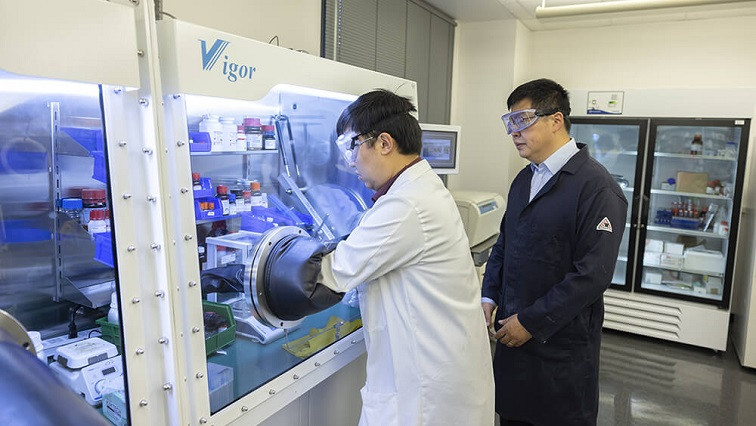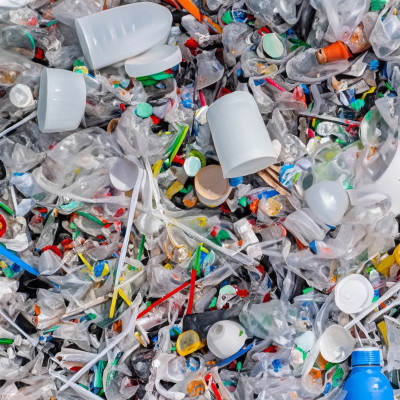Nanoparticles have been a focal point of scientific inquiry because of their unique properties, which hold promise across diverse fields such as electronics, biology and material science. Li is investigating one promising method of producing nanoparticles, known as molten-salt synthesis (MSS).
In very simple terms, MSS is kind of like preparing soup, only you’re making nanoparticles instead of dumplings. Scientists mix certain chemicals together and heat them up until they melt into a hot lava-like liquid. Then, they add in other chemicals that they want to turn into nanoparticles. These chemicals dissolve into the hot liquid, reacting with each other to form tiny particles. As the liquid cools down, these particles start to stick together and grow, eventually forming the desired nanoparticles.
MSS is prized for its ability to produce high-quality nanoparticles with controlled properties. It is a desirable technique because the process is environmentally friendly, cost-effective, simple to operate and easy to scale, but there is a drawback. The technique sometimes relies on trial and error, leading to time inefficiencies.
“One problem is we don’t fully understand how these particles form and grow during MSS, so it’s hard to control their size and shape,” Li said. “To solve this, we want to use special X-ray techniques to watch how metal oxide nanoparticles (MONPs) form and grow. By doing this, we hope to figure out how to control their properties better, which could lead to new and better technologies.”
The primary objectives of the research project are threefold:
– Observation and Analysis: Employ cutting-edge X-ray techniques at the U.S. Department of Energy’s Argonne National Laboratory to monitor the formation and growth of MONPs, unraveling the underlying mechanisms dictating their evolution.
– Optimization: Identify optimal synthesis strategies through comprehensive study of MONP growth dynamics, aiming to streamline production processes and enhance nanoparticle properties.
– Knowledge dissemination: Share insights and findings with the scientific community to catalyze further advancements in nanoparticle research.
As part of the project, Li said one NIU graduate student will be recruited to contribute to the research efforts. This marks the eighth NSF grant secured by Professor Li since his tenure at Northern Illinois University began in 2018, underscoring his successful ongoing commitment to pushing the boundaries of scientific inquiry.
Read the original article on Northern Illinois University.







